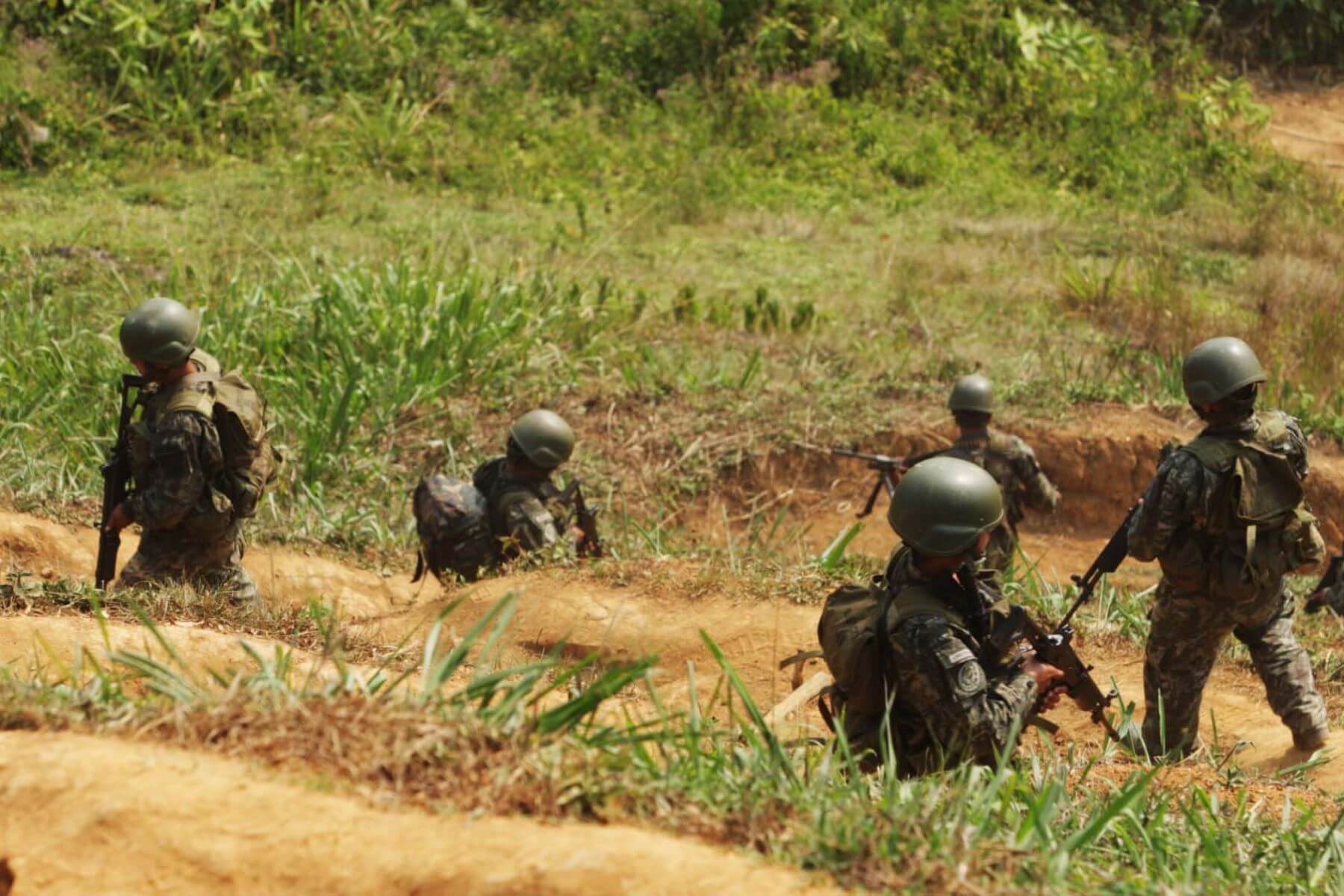Lima, Peru — Four members of Peru’s Army were killed last week in a confrontation with remnants of the Shining Path, a Maoist guerrilla group that was heavily active in Peru in the 1980s and 90s but has since declined.
Two members of the Shining Path were also killed, according to reports.
The clash occurred in the early morning hours of September 4 as members of military were on patrol in the Huanta province in the Valley of the Apurimac, Ene, and Mantaro Rivers (VRAEM), a region in central Peru renowned for its production of coca, the active ingredient in cocaine.
The casualties include a lieutenant, two sergeants, and a corporal. Additionally, three other soldiers were wounded and are currently receiving medical treatment at a hospital. The remains of the fallen soldiers were transported to the city of Huamanga, located in the southern department of Ayacucho.
The official statement emphasized that operations in the area are being intensified with the goal of identifying and capturing the terrorists involved in these events. “The Army deeply regrets the sensitive loss of our fellow members of the Peruvian Army and remains committed to staying steadfast in the pursuit of peace in the country,” it added.
Through the social media platform X, formerly known as Twitter, the Ombudsman’s Office called for immediate attention to the injured and urged vigilance in case there is a need for the evacuation of other individuals from the region.
The VRAEM is an extensive region of mountainous jungle spanning four departments on the eastern slope of the southern Peruvian Andes. It is known to be the source of approximately half of Peru’s cocaine production, making Peru the world’s second-largest producer of this substance. In addition to drug trafficking, this area continues to be home to the last remnants of the Shining Path rebel group.
The Shining Path’s history
The Shining Path, founded in 1970 by Abimael Guzman, who used the alias “Comrade Gonzalo,” was a group with its roots in the teachings of Peruvian Marxist Jose Carlos Mariategui. The name “Shining Path” (Sendero Luminoso in Spanish) was directly inspired by a passage in Mariategui’s work, where he spoke of “Marxism-Leninism opening the shining path to revolution.”
At its zenith, the Shining Path wielded influence across the entire nation, including the capital city of Lima. However, its primary operations were concentrated in the remote highland provinces of Ayacucho, Huancavelica, and Apurimac. These regions were inhabited predominantly by indigenous communities grappling with extreme poverty, isolation, and marginalization from Lima, the nation’s political and economic hub.
In 1992, Peruvian law enforcement successfully apprehended Guzman in Lima. Over the subsequent years, the organization splintered into smaller factions. Guzman passed away while in custody on September 11, 2021.
Although the Shining Path has sporadically carried out attacks since the year 2000, its threat to the state has considerably diminished. By 2006, the guerrilla group’s numbers had dwindled to an estimated 300 members. What remained were small bands primarily engaged in drug trafficking activities within the VRAEM.











